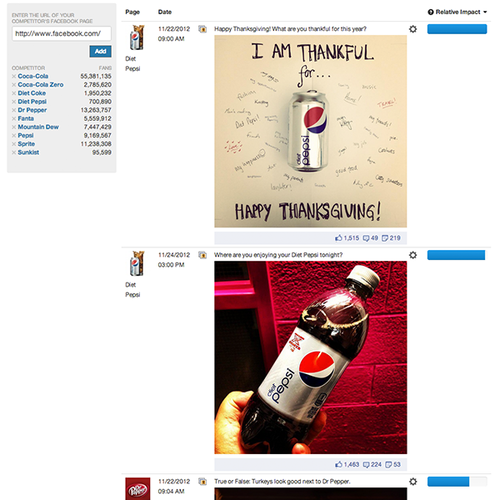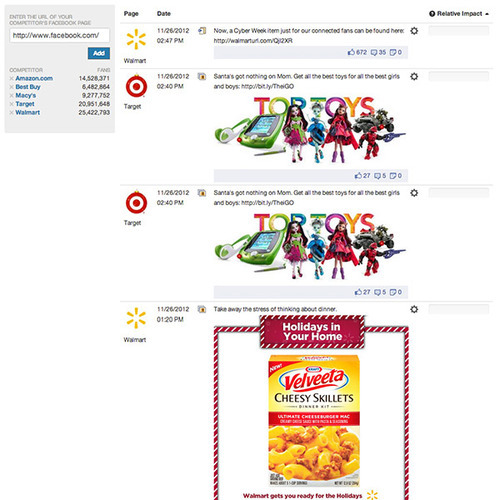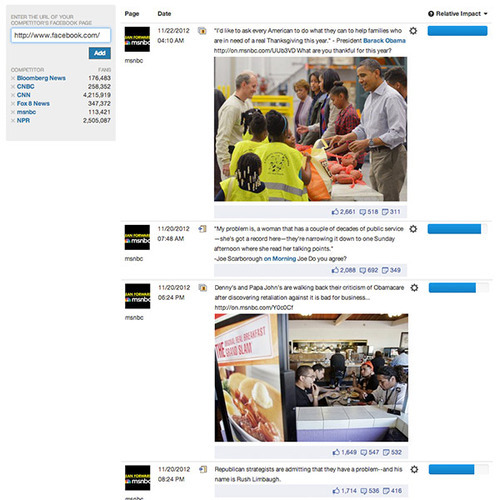Yesterday, the internet went ablaze with yet another round of hoopla surrounding changes to Organic Reach for Pages, this time because of quotes from Dallas Mavericks owner Mark Cuban published on Read Write Web.
In the article, Cuban complains that in order for one of his companies’ Pages’ Posts to reach one million people on Facebook, his companies must pay roughly $3,000 – a sum that Cuban finds outrageous. Cuban claims to have shifted his companies’ marketing strategies to Twitter and Tumblr as the “primary” sites for the businesses he’s invested in, and rely less on Facebook.
Hey Mark Cuban, Let’s Do Some Math
Let’s use Cuban’s example – $3,000 to reach one million people:

$3,000 / 1,000,000 people = $0.003 per person

Reality Check:
Mark Cuban is complaining about having to spend less than a penny per fan.
Just 1/3rd of one cent to reach each fan of the Dallas Mavericks. In advertising terminology, where we measure “per-mille” (per-thousand), that’s a $3 per 1,000 people reached. Is it not worth $0.003 to reach a fan? Is it not worth $0.30 to reach them 100 times?
Mr. Cuban seems to be having a tough time seeing this as a bargain, so let’s connect the dots and see how it impacts the bottom-line.
Every year, the Dallas Mavericks organization has to let their fans know when single game tickets go on sale, and where to buy them online. For any NBA team, selling tickets is themost important part of making money in both the short-term and long-term.
The average price of a ticket to a Dallas Mavericks game is roughly $62.1.
Is it not worth paying $0.003 cents per fan to remind them to buy tickets? To seed a video of Dirk Nowitzki’s game winning shot (to get people to come to the game)? To tell fans where to buy the latest throwback jersey? As Ed Lover would say…

Mark Cuban, you can afford $0.003 per fan to increase Mavs home game attendance. C’mon son!
Organic Reach isn’t a fixed number!
Cuban states that having Pages reach 100% of their fans is “common sense”, and presents his case as if Facebook is putting a fixed cap on the Mavericks’ organic reach. The only change Facebook has made has been to give posts that receive lots of negative feedback less distribution in the News Feed. As we shared with TechCrunch last week, highly engaging posts that don’t get negative feedback are actually getting more reach than ever before.
Reality: You can double your organic reach without spending a dime.

The graph above shows the Organic Reach of 9 different posts from the same Facebook Page. Take a look – the post represented by the grey line reached 68,768 people within the first 15 minutes of being published. By comparison, the post represented by the red line reached just 9,159 people. That’s a difference of 700%.
The lesson here is that Organic Reach is highly variable. We’ve been helping our customers reach more people through News Feed Optimization for years, and Mr. Cuban, if you’re reading this, we’ll help you too!
“Using Myspace Is Not As Crazy As You Think”
Reality: Yes, it is.
As of November 13th, MySpace has approximately 3.8 Million Monthly Active Users. By comparison, Facebook has over one billion.
Facebook has approximately 263x as many users as MySpace.
Brands don’t get to choose where people spend their time, and over one billion people have chosen to spend their time on Facebook. If Cuban chooses to focus the Dallas Mavericks’ attention on MySpace instead of Facebook, their marketing efforts will reach fewer people.
Twitter, Tumblr & MySpace
Cuban portrays Twitter, Tumblr and Instagram as paradise for brands:
“Twitter and Tumblr are both ready, willing and able to support brand activation without holding followers hostage for additional revenue. And in the ironic department, Instagram has the same friction-free reach to followers that Twitter and Tumblr have but Facebook doesn’t.”
What Cuban neglects to mention here is that neither Twitter nor Tumblr nor Instagram provide marketers with any insight into the number of people their content reaches. Literally none at all, and given the recent uproar over News Feed reach, I can’t exactly blame them – Facebook has to work tirelessly to educate marketers and advertisers about the metrics it provides.
In the absence of any data, Cuban and many others assume that they are reaching their entire audience on these networks, which is flat out wrong.
Reality: There is no utopia in social media.
No social network guarantees free, organic reach to all followers. Think about it from a user perspective for a second (something every marketer or advertiser should do more often):
Twitter, Tumblr and Instagram do not use any ranking algorithms to decide which content appears in users feeds – content is only ever sorted by recency. When you login to Twitter for the first time in 5 hours, you might scroll through the most recent 30-40 tweets, but if you’re following a few hundred people, you’re missing hundreds of tweets every day. Same with Tumblr, same with Instagram.
In practice, this means that the more people and brands that users follow on these networks, the less likely they are to see a given tweet, photo or post – there’s just too much content. This is true of every social network.
We’ve been through this before.
Experts have been writing about News Feed Optimization since 2007. But most marketers haven’t paid much attention, and until recently, assumed that they were reaching their entire audience for free. So now, instead of adapting to reality, folks like Cuban have chosen to make the same mistake on other platforms like Twitter, Tumblr and more.
When these platforms start providing analytics to brands, brands will be in for another shock. Many will get mad, point fingers like Cuban and threaten to leave.
And then we’ll do this song and dance all over again.












Recent Comments